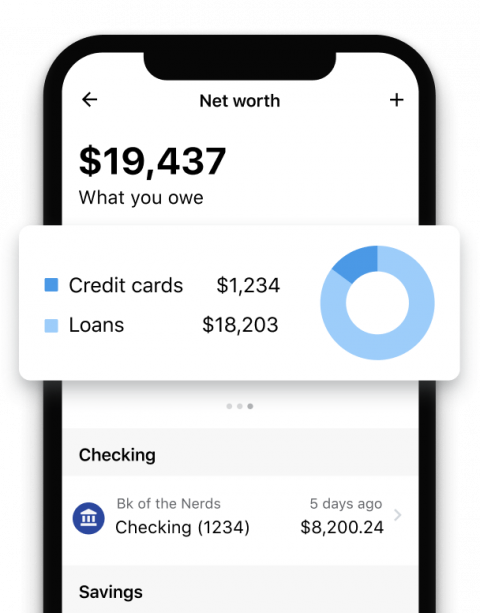How Long Do You Have to Pay Medical Bills
Paying off medical debt isn't as clear-cut as resolving other forms of debt , such as a loan or credit card. There's generally more room to negotiate the terms of repayment — and maybe even to reduce the amount you owe.
To start, look over your medical bill and compare it with your explanation of benefits , if you have insurance. Figure out what you're expected to pay, but don't make the mistake of taking your bill at face value: You can always try to negotiate the total cost first.
When working with your provider, be upfront about what you can pay. If you don't have insurance, you'll likely be charged more than someone who does. Knowing there's a price disparity can give you leverage.
"That can be useful for negotiation when you actually have to pay the bill," says Chi Chi Wu, staff attorney at the National Consumer Law Center. "Tell them you'll pay what BlueCross or Medicaid would pay."
It's debt-crushing time
Sign up to link and track everything from cards to mortgages in one place.

Payment plan
Many medical providers, including physicians, dentists and hospitals, can work out a payment plan for your bills. This is one of the simplest and most common ways to resolve a bill you can't afford in one payment.
The minimum amount you can pay on your payment plan will depend on your bill amount and the terms you negotiate. You generally break the bill into multiple equal payments over a few months until the total is covered.
Tip: Ask if there are billing charges or any other fees associated with the payment plan, so you can assess the affordability.
Medical credit cards
If your provider doesn't take payment plans, it may accept medical credit cards . They're generally for specific medical procedures, and many offices have applications on hand.
Many medical credit cards have an interest-free period of six to 12 months. Do the math to determine if you can pay off the debt within that period. If you can't, you may be hit with a deferred interest rate that can make your debt significantly more expensive.
Tip: Know what extra costs you'd face if you're hit with deferred interest to fully understand whether a medical credit card makes sense for you.

Unsecured credit options
Personal loans
Getting a personal loan may be best after you've exhausted other options, such as a payment plan or medical credit card. Loan amounts range from $1,000 to $100,000, so they can be beneficial for large amounts of medical debt.
Tip: Be sure to shop around to compare rates, fees and repayment terms.
0% interest credit card
A 0% interest credit card could be a good option if you aren't eligible for a payment plan or medical credit card. You'll need good to excellent credit to qualify, though. Be sure to pay off your balance before the promotional interest period ends and an interest rate kicks in.
Tip: Dedicate the card only to medical bills if you do go this route. Otherwise it'll be harder to keep records of the expenses for tax deductions or a medical savings account.
Medical bill advocate
If you've had an extended stay in the hospital or an intensive procedure, you're probably facing a mountain of medical bills.
You can hire a medical bill advocate to negotiate on your behalf. Advocates are experts in medical billing who know how to read health care bills and understand common costs for procedures. They can spot potential errors or overcharging and help you reduce the amount you owe.
Groups such as Medical Billing Advocates of America can connect you with an advocate.
Tip: Make sure any fees charged by a medical bill advocate would be outweighed by the savings before signing up for a plan.
Income-driven hardship plan
If you have low income and high medical bills, you may be eligible for an income-driven hardship plan.
Similar to a standard payment plan, an income-driven hardship plan can break up the total amount you owe into more manageable, regular payments. You may also be able to reduce the amount you owe. Talk with your provider to see if it offers such a plan.
Tip: You may have to apply for Medicaid before being eligible.
Negotiating costs on your own
If you have medical bills in collections or you think you can take on the work of a medical bill advocate, you may be able to negotiate down the cost of your medical bills on your own.
For medical bills in collections, know that debt collectors generally buy debts for pennies on the dollar. That gives you some good leverage to negotiate.
If you think you can haggle with your provider, you may be able to take the work of a medical bill advocate into your own hands. Comb through your medical bills and spot any charges that seem wrong or too high.
You may be able to pair negotiation with another payment option.
Tip: Don't be afraid to talk to your provider. Make sure you can afford what you agree to do. You may have a choice between a lump sum and a payment plan.
Summary of medical debt payoff options
What not to do
You may be tempted to jump at a quick fix for your medical debt — or to ignore it entirely. But doing so could cost you more in interest and may put your credit scores at risk. Taking a smart approach to paying off your medical bills can help you avoid delinquent medical debt on your credit report .
Putting medical debt on an existing credit card is an example. That will appease your doctor's office, but you typically will face a double-digit interest rate if you can't pay the balance in full when your card statement arrives.
As far as your credit reports are concerned, here's a bit of good news: There is a waiting period of 180 days before an unpaid medical bill will show on your credit reports. Also, medical accounts in collections that are paid later by health insurers will be removed from your reports.
If you don't think you can afford your medical bills and you're facing overwhelming debt, consider looking into debt relief for your medical bills .
How Long Do You Have to Pay Medical Bills
Source: https://www.nerdwallet.com/article/finance/pay-medical-debt